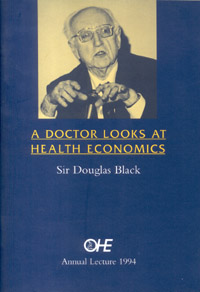Unlocking the Value of Combination Therapies

Inequality in health is back on the political agenda in the UK. Three factors have made inequality an issue – firstly, concern that the internal market will enable some, notably patients of GP Fundholders, to get better treatment than other NHS patients, secondly,…
Inequality in health is back on the political agenda in the UK. Three factors have made inequality an issue – firstly, concern that the internal market will enable some, notably patients of GP Fundholders, to get better treatment than other NHS patients, secondly, a revival of interest in community values, bringing with it a recognition of the impact of poverty on life expectancy, and thirdly, greater awareness that health care is being rationed, and will increasingly be so, irrespective of which political party is in Government. These factors require a more explicit debate about entitlement to healthcare, and about how we decide how much to spend on healthcare.
It was therefore a particular privilege to have Sir Douglas Black give the inaugural O H E annual lecture, which was held on 8 March 1994. The 1980 ‘Black Report’ was the first to document the extent of health inequality in the UK, proposing measures to tackle some of the social roots of poor health, as well as to ensure that the NHS helped to reduce inequality in health. In his lecture Douglas Black discusses the factors determining health, how healthcare should be financed and organised to minimise inequality and the role that cost-effectiveness analysis and public consultation can play in taking difficult decisions about rationing healthcare.
A Doctor Looks at Health Economics
Black, D.
(1994) A Doctor Looks at Health Economics. OHE Monograph. Available from https://www.ohe.org/publications/doctor-looks-health-economics/

